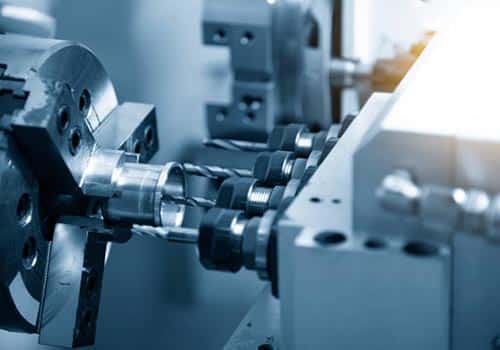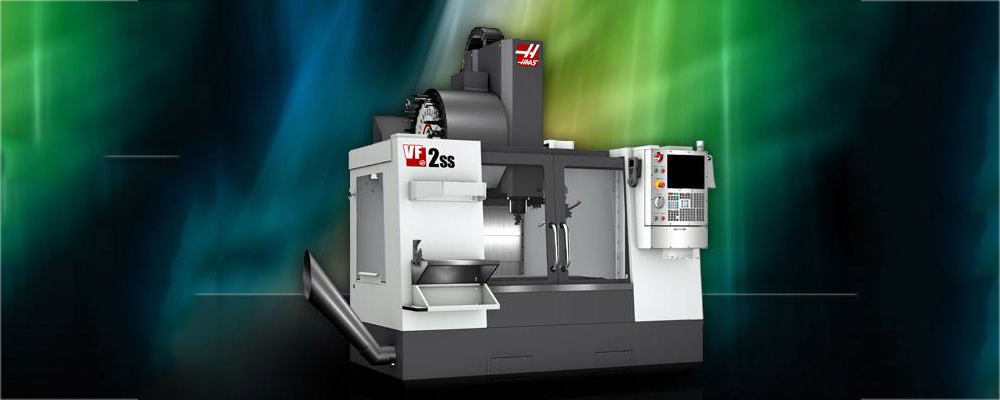CNC Swiss and Standard CNC machinery each offer a number of distinct advantages and differences when it comes to the production of precision components. Each category of the machine can make sophisticated components with high levels of accuracy and productivity for a wide range of tasks and businesses. Different applications are going to be associated with the operation of various kinds of machines.
Compared to a CNC Lathe machine, a CNC Swiss Lathe machine will need a distinct set of operations. It is possible to decide which kind of machining is required for your specific component by first gaining knowledge of the differences and benefits offered by CNC Swiss and Standard CNC machinery.
Swiss Machining
The manufacturing process on a CNC Swiss machine has the potential to be very precise, cost-effective, and reproducible. A template bushing device can efficiently guide your component through production when used with a Swiss Lathe machine. Your item will be worked via a guide bushing during this machining. It will always be possible for your component to be cut close to where it is currently supported. The procedure for precision machining will not be made more difficult by the length of your piece. While cutting your component, using this machining method will guarantee that your part maintains a consistent distance from the collet at all times.
The CNC Swiss machines are particularly effective when working with long and thin components that need rotation while the operation is being performed. In addition, they can produce extremely successful outcomes when making larger quantities of intricately detailed small parts. Swiss machinery can handle sophisticated designs and achieve extraordinary accuracy for various sectors.

Types of Swiss Screw Machines
Two primary varieties of Swiss screw machines are used in modern manufacturing.
Tools in automatic Swiss screw machines are rotated toward the workpiece area by use of a disc cam; the workpiece is kept in place by several spindle collets. Parts may be manufactured to precise standards using CNC machines equipped with a CNC unit to control the tools. Multi-axis capabilities allow CNC Swiss screw machines, often CNC lathes, to produce high-quality parts quickly.
When manufacturing several pieces, screw machines are the most cost-effective method, even though they need some initial setup time and may be either automatically or CNC-driven. In most cases, they are not a good option for use as a one-off prototype solution. However, the fact that they can operate with such a broad array of metals makes them a versatile choice when it comes to producing components made from various kinds of metals.
Advantages of CNC Swiss Machinery
The amount of time required to complete a cycle may be significantly reduced by CNC Swiss machining. Your components will be manufactured using Swiss equipment using a machining cycle that allows for the simultaneous completion of many tasks. This machining makes it possible to do many operations on your component simultaneously, inside the confines of a single successful cycle of setting up and carrying out the machining operation. These machines have several axes, which together make it possible to generate a greater number of components in a manner that is both complicated and exact.
To get a precise cut on your object, CNC Swiss technology demands the use of an oil or a fluid. This liquid acts as a coolant for the machine you are using. The machining oil will immediately heat up throughout the production process to more effectively convey heat in the reverse direction of the tools’ cutting activity. Assuming this is the case, the coolant fluid will protect against rust and premature wear and tear.
Several processes may be carried out in a much shorter time when employing a CNC Swiss machine. A component may be rotated by a CNC Swiss screw machine at a maximum speed of 10,000 RPM while maintaining an accuracy of 0.0002 to 0.0005 inches. When it comes to milling a particular part, a CNC Swiss lathe is not only more efficient, but it also results in less waste and provides more flexibility.
Standard CNC Machining
The production of components using standard CNC technology requires a series of carefully planned motions, each of which may be handled and controlled along the edge of a different axis. CNC lathes can rotate and turn the cutting tool in the X and Y directions and in the depth direction, referred to as the Z motion. The collet will hold your component firmly in place, ensuring that it is correctly fastened. After that, the rotating cutting tool will perform a precise cut on the manufactured part you provided. The machining method you are using requires the use of motors that work on the component you have made. As a consequence of this, it can create independent movements that are capable of operating in very precise and accurate cutting motions.

Advantages of CNC Machinery
Machining using a computer numerical control (CNC) system provides a degree of control that may not be attainable with an automated Swiss screw machine. Turning and milling may be done with a greater variety of tool sets because of the CNC unit’s ability to operate tools simultaneously across several axes. With CNC capabilities, cycle times may be cut down significantly, and more complex components can be produced.
Standard CNC machining can operate the cutting tool in an advancing motion, which enables the exact cutting to be performed throughout the whole of an individual item. Consequently, a CNC lathe can explicitly regulate the rotations and precisely control the cutting tool’s movement. This production style may establish a consistent and repeatable routine, ultimately leading to unrivaled outcomes.
Water is the needed fluid that is essential while the cutting tool is operating on your piece and is regarded as the coolant liquid when working on typical CNC machines. Water is vital for the machines because it delays the onset of premature wear and tear and protects them from the formation of rust. CNC lathes have the capability of producing components that may be larger and made out of harder materials, in addition to producing parts that are shorter and have a larger diameter.
Highly Accurate & Efficient Parts
The team at Runsom Precision focuses on precision and quality to provide customers with reliable precision machined parts. The product tolerances we created exceed the minimum tolerance standards required by the industry. Our machining capabilities provide a means by which complex machined parts can be produced. And our CNC workshops support a wide range of significant industries such as Optics, Defense, Medical, and Aerospace.
Our engineering experts will assist with you throughout the process to meet your most precise detail requirements. Our machining centers are equipped with cutting-edge Swiss CNC machines and standard CNC machines to ensure customers can quote with shorter lead times and deliver unmatched results. An experienced team and advanced technology allow us to deliver higher quality parts with complex designs.
If you are looking for a supplier in China to outsource your custom CNC Swiss machining or standard CNC machining projects, please feel free to contact our team or simply submit your CAD files or drawings online to get an instant quote.
Other Articles You May be Interested in:





